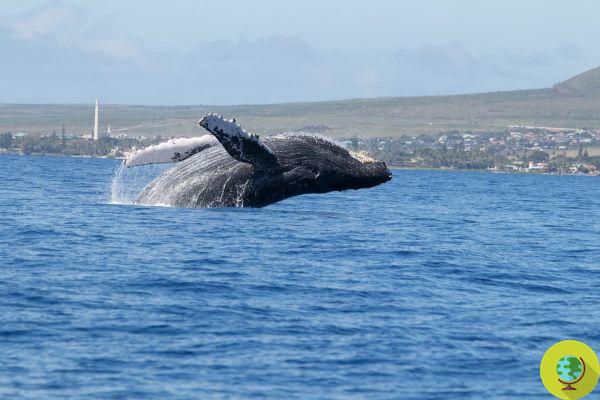
Discover the language of whales all together. A global 'crowdsourcing' experiment. It is the idea of a group of American and British scholars, who have appealed to wildlife enthusiasts from all over the world to collaborate in the decoding of the mysterious whale song.
He is about to end up run over, his mother saves him
Discover the whale language. A global experiment in style ‘crowdsourcing’. It is the idea of a group of American and British scholars, who have appealed to wildlife enthusiasts from around the world to collaborate for the decoding of the mysterious whale song.
The "citizen-scientists", as the experts themselves have defined them, will have to study about 15 thousand registrations di sound waves issued by 'pilot whales and killer whales from all over the planet. The goal will be discover new dialects and communicative forms of mammals largest in the world.
The 'Whale Project', or 'Whale Project' to Americanize us, was launched today by the prestigious US magazine Scientific American and by the organization 'Zooniverse'. This is the first attempt, in the field, to experiment with the 'crowdsourcing' network, that is a business model in which a company requests the development of a service or product to a group of people gathered in a virtual community. As early as 2007, the help of countless amateur astronomers was required to study the images taken by the Hubble Space Telescope.
Improvised specialists, however, through the whale.fm channel will be asked to ato analyze and compare the different sound wave patterns (and spectrograms), emitted by cetaceans. Each audio reproduction refers to a specific location in the sea, or geotag, so that scientists can then trace the song back to specific families of barnacles.
Il professore Ian Boyd, one of the collaborators on the project at the University of St Andrews, dispelled any doubts about the question that any reader will have begun to ask from reading the first ten lines: why take 'non-scientists' instead of having a computer analyze the sounds? “Because the human ear - ruled prof. - it's better than any computer “.
To echo the editorial director of Scientific American: “There is no need for a degree, just curiosity about the world around us and a lot of observation. You just have to report what you hear, and what you see on the spectrograms ".
"If these animals have some linguistic form or communicative tradition, we want to find it," Boyd concluded. “Whales, although of the same species, make different sounds, and that means they inherited their language from their parents".
AR


























